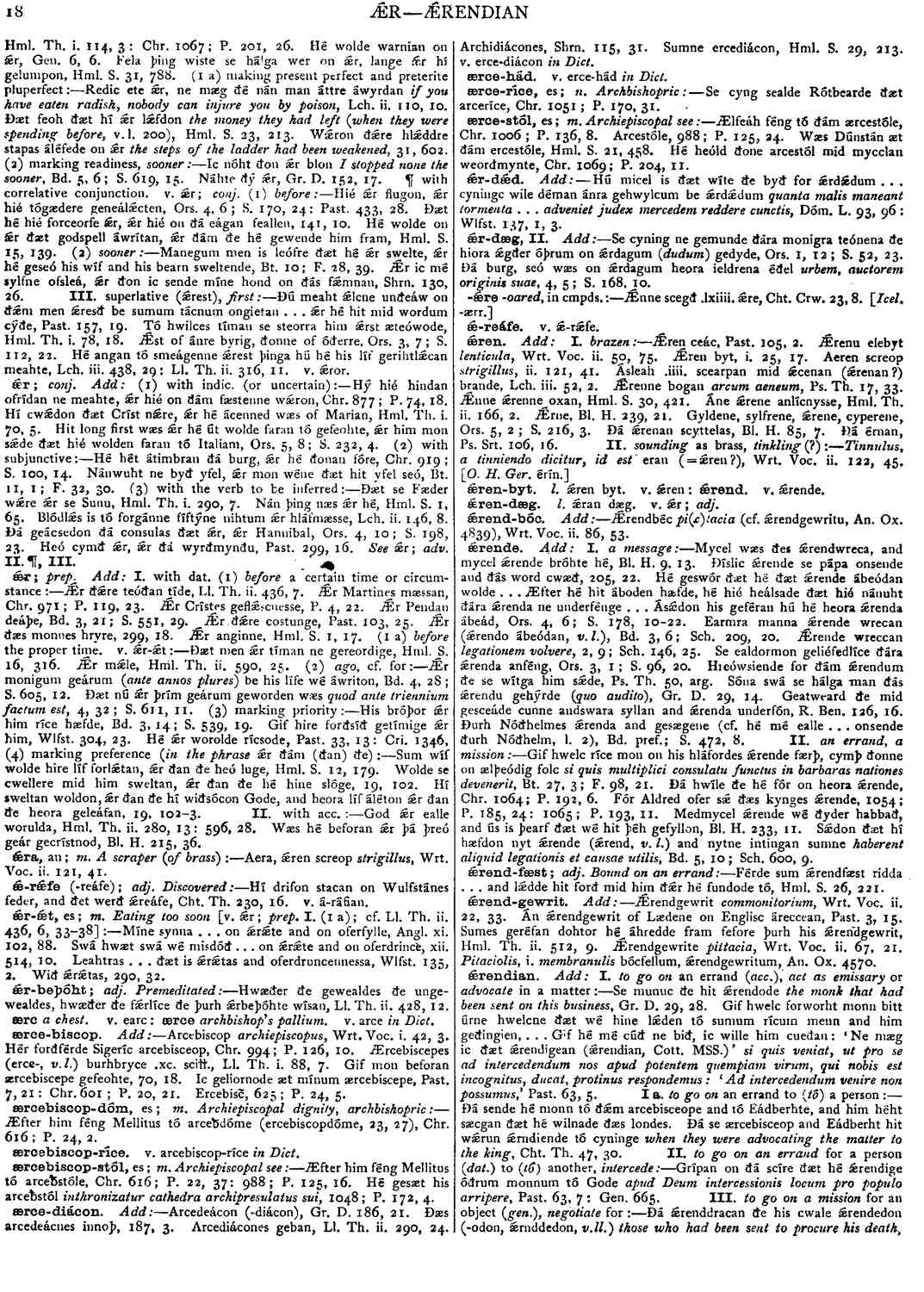ǽrendian
- verb [ weak ]
-
Se munuc ðe hit ǽrendode
the monk that had been sent on this business,
- Gr. D. 29, 28.
-
Gif hwelc forworht monn bitt úrne hwelcne ðæt wé hine lǽden tó sumum rícum menn and him geðingien, . . . Gif hé mé cúð ne bið, ic wille him cueðan: 'Ne mæg ic ðæt ǽrendigean (ǽrendian, Cott. MSS.)' si quis veniat, ut pro se ad intercedendum nos apud potentem quempiam virum, qui nobis est incognitus, ducat, protinus respondemus: 'Ad intercedendum venire non possumus,' Past. 63, 5. I a. to go on an errand to (tó) a person :-- Ðá sende hé monn tó ðǽm arcebisceope and tó Eádberhte, and him héht sæcgan ðæt hé wilnade ðæs londes. Ðá se ærcebisceop and Eádberht hit wǽrun ǽrndiende tó cyninge
when they were advocating the matter to the king,
- Cht. Th. 47, 30.
-
Grípan on ðá scíre ðæt hé ǽrendige óðrum monnum tó Gode
apud Deum intercessionis locum pro populo arripere,
- Past. 63, 7: Gen. 665.
-
Ðá ǽrenddracan ðe his cwale ǽrendedon (-odon, ǽrnddedon, v. ll.) those who had been sent to procure his death, Bd. 2, 12; Sch. 160, 23. III a. with dat. of person for whom :-- Se esne ðe ǽrendað his woroldhláforde wífes
the servant who is sent to procure a wife for his lord,
- Past. 143, 1.
Bosworth, Joseph. “ǽrendian.” In An Anglo-Saxon Dictionary Online, edited by Thomas Northcote Toller, Christ Sean, and Ondřej Tichy. Prague: Faculty of Arts, Charles University, 2014. https://bosworthtoller.com/37923.
Checked: 0